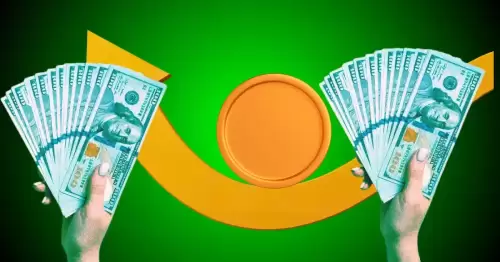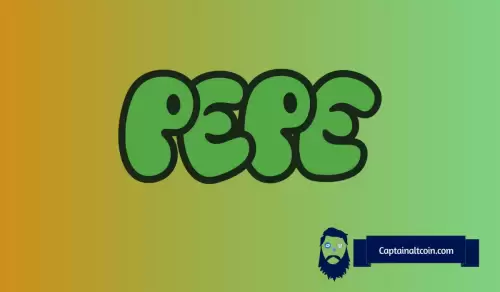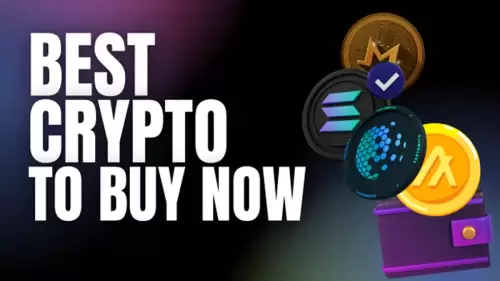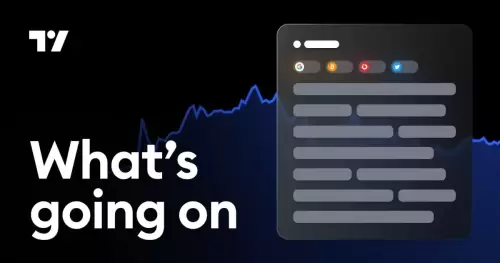Imagine that someone in a position of great political power created a hundred billion raffle tickets and made them available for public purchase.

Imagine that someone in a position of great political power created a hundred billion raffle tickets and made them available for public purchase. If you buy the tickets, eventually you will receive a reward: a proportional quantity of magic beans—and eventually each magic bean will be exchangeable for one United States dollar. What’s more, if you buy the raffle tickets early, you can get them for less than a dollar, perhaps for as little as five cents apiece. Not only will the raffle tickets eventually gain you more traditional currency; you can also vote on company matters with your raffle tickets and help manage the magic-bean supply, and the more tickets you purchase, the more say you have. Oh, and the creator of the raffle will keep a bunch of the tickets for himself, and much of the revenue generated by the magic-bean economy will also go back to him.
This effectively describes the workings of a new cryptocurrency created by World Liberty Financial, a company affiliated with the Trump family, with President Donald Trump serving as its “Chief Crypto Advocate.” The cryptocurrency, a so-called governance token called WLFI, is the raffle ticket, and another cryptocurrency, a “stablecoin” called USD1, is the magic bean. World Liberty deals in the nascent industry of “decentralized finance,” in which cryptocurrency instruments allow users to circumvent the traditional, regulated banking ecosystem for moving, storing, and lending money. Stablecoins are cryptocurrencies that are pegged to a single currency value, such as one U.S. dollar, though they are not always so stable: Terra, a once successful stablecoin, lost its peg and suffered a collapse in 2022. Stablecoins fall nebulously within the bounds of the law, so long as they don’t appear to function as securities (as, for instance, stock in a publicly traded company does). A banner on the World Liberty website serves as a legal disclaimer: “World Liberty Financial does not consider the tokens to be securities.” Donald Trump et fils quietly assumed a controlling stake of World Liberty, in January, through a company called DT Marks Defi. Though fine print specifies that no member of the Trump family is an “officer, director or employee” of World Liberty, DT Marks Defi receives seventy-five per cent of its subsidiary company’s net revenue. (The remaining twenty-five per cent goes to Axiom Management Group, which is connected with two of World Liberty’s official leaders, Chase Herro and Zachary Folkman, a pair of self-described “crypto-punks,” whose other ventures include, in Folkman’s case, a company called Date Hotter Girls.)
Trump is a onetime crypto skeptic who announced, in a tweet in 2019, “I am not a fan of Bitcoin.” Yet in recent years, he has touted several varieties of magic beans, bringing a P.R. boost to an industry in which new ventures are often dead on arrival. In 2022, he released Trump Digital Trading Cards, a series of non-fungible tokens that has continued to produce new batches, including a January, 2024, “Mugshot” edition, featuring his glaring police photo. (Bulk buyers of the mug-shot N.F.T. received invitations to Mar-a-Lago.) Three days before his Inauguration, he launched a so-called meme coin, cryptocurrencies based on online notoriety that become de-facto pyramid schemes as early buyers sell off to later ones at higher prices. $TRUMP consists of a billion coins, eighty per cent of which were kept by Trump-related companies, and the remainder sold to the public. It reportedly made around three hundred and fifty million dollars in revenue from its sale and has a market capitalization of nearly three billion dollars; Trump’s business earns a fee for every $TRUMP transaction.
The price of the meme coin is now down to less than a fifth of its all-time high, and the majority of its buyers have seen their purchases lose value. An official Melania Trump meme coin released soon after Trump’s has fared even worse. But $TRUMP was given a recent bump when Fight Fight Fight, a business associated with the Trump Organization and its crypto projects, ran a contest in which the two hundred and twenty largest holders of the meme coin won invitations to a gala dinner with Donald Trump, to be hosted at the Trump National Golf Club near Washington, D.C. (Black tie is optional.) The top twenty-five will get access to a more private reception with the President. The contest offers an explicit way to buy Trump’s attention, lending magic beans a new appeal as a lobbying tool. Many of the meme-coin investors are based abroad, and some have been unequivocal about their goal of influencing Trump’s agenda. (One Australian entrepreneur told the Times that he hopes to speak to the President about crypto policy; a Mexican buyer said that he would like Trump’s ear on tariffs.) On Tuesday, a small Chinese company that






















































































